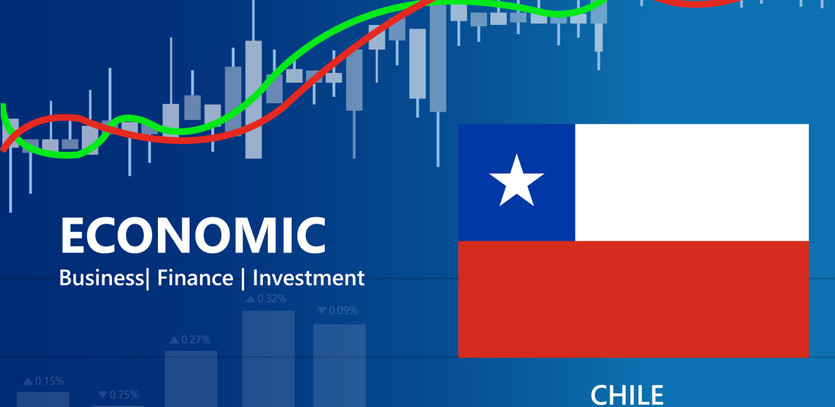Chile stands tall as one of South America's shining stars for investors, boasting a vibrant and prosperous economy. Recognized as the globe's premier exporter of copper, and ranking fifth in wine exports, the nation's diverse portfolio of agricultural, fishery, and forestry products make it an intriguing investment destination.
Key Insights
A Powerful Economy
- Chile's economic prowess places it among South America's largest and most thriving economies, enticing international investors from all corners.
- Challenges that require careful consideration include a dependence on limited economic sectors, regional geopolitical uncertainties, and certain corporate governance shortcomings.
- Options to invest in Chile are wide-ranging, encompassing ETFs, ADRs, or even direct stock purchases from the Santiago Stock Exchange.
Benefits of Investing in Chile
Investing in Chile presents an array of advantages that positions this South American jewel as a compelling choice for discerning investors. Here, we'll break down the allure, delving into the facets that make Chile not just an appealing investment ground, but a standout among Latin American economies.
A Strong Investment Destination
Chile's Reputation: Chile's financial landscape has come to be highly regarded within the global investment community, showcasing itself as one of Latin America's strongest investment destinations.
- Commodity Richness: With vast exposure to copper, lithium, and other minerals, the nation has become a magnet for foreign capital, propelling its economic growth.
Solid Economic Performance
OECD Membership:
- Chile's Entry: Chile's inauguration into the Organisation of Economic Co-operation and Development (OECD) in May 2010 marked a historic first for South America.
- Competitive Stature: At the time, it held the honor of the highest nominal GDP per capita and the highest competitiveness rating in Latin America according to the Global Competitiveness Report for 2009-2010.
Business Climate:
- Risk Assessment: Chile's business environment is recognized for its low to acceptable level of risk, a distinction bestowed by Michigan State University's International Business Center.
- Financial Transparency: The accessibility and reliability of corporate financial information in Chile make it a trustworthy investment arena.
Trade and Health Measures:
- Positive Trade Balance: In 2019, Chile's imports and exports amounted to $69.6 billion and $69.7 billion, respectively, leaving a positive trade balance of $90 million.
- COVID-19 Response: Over 60% of Chileans had been thoroughly vaccinated against COVID-19 by July 2021, enabling economic reopening and active inflation control through monetary policy adjustments.
Rich Natural Resources
Copper and Lithium Reserves:
- World's Largest Copper Exporter: Chile's dominance as the largest exporter of traditional copper underscores its significance in the global metals market.
- Second-Largest Lithium Producer: With an estimated 51% of the world's lithium reserves, Chile is primed to capitalize on the burgeoning demand for next-generation battery technologies.
Supportive Government
Economic Policies and Corruption Perception:
- Growth and Sustainability: Chile's government has crafted policies that celebrate growth and sustainability, fortifying its position as one of the wealthiest governments in Latin America.
- Corruption Perception: Equally ranked with the United States (score of 67, rank of 25th) in the Corruption Perception Index, Chile's government radiates integrity and forward-thinking governance.
In Summary, the benefits of investing in Chile stretch far and wide. From its strong performance and vast natural resources to a government that fosters growth and combats corruption, Chile invites investors to partake in a dynamic and promising economic journey. Its compelling blend of opportunities makes it a must-consider destination for global investment.
Risks of Investing in Chile
While Chile's investment environment brims with opportunities, it does present certain challenges that merit consideration. Investing in this vibrant South American nation is not without its nuances, and understanding the potential risks is vital for making informed decisions. Here, we explore the complexities and potential pitfalls in investing in Chile.
Dependence on Copper
Chile's Economic Reliance:
- Copper-Centric Economy: Chile's economy leans heavily on copper exports. A downfall in global copper prices can send ripples through the entire economic structure.
- Volatility in Markets: As markets fluctuate, so too does Chile's fiscal health. The heavy dependence on copper creates a vulnerability that requires strategic investment consideration.
Political and Environmental Challenges
Constitutional Dynamics and Climate Changes:
- Political Tensions: Calls for constitutional reform have stirred political unrest. An evolving political landscape can inject uncertainty into investment prospects.
- Geographical Vulnerabilities: Chile is susceptible to earthquakes, and environmental changes have led to droughts, fires, and floods. The climate shifts present challenges that must be navigated with care and foresight.
Geopolitical and Corporate Concerns
Regional and Corporate Dynamics:
- Neighboring Economies: Chile's proximity and connection to Argentina's economy pose a significant geopolitical risk. Economic uncertainties in Argentina can affect Chilean markets.
- Domestic Unrest: Following the protests in 2019, Chileans voted to create a new constitution, shifting the power dynamics within the state. This could potentially alter investment dynamics.
- Corporate Governance: The lack of stringent corporate policies, including nominating committees and disclosure of executive pay, signifies a lag in adherence to international standards. Investors should be mindful of the differences in corporate governance.
Reliance on Exports
Dependence on Global Partners:
- Export Sensitivity: Chile's economic health is intertwined with major trading partners like the United States, European Union, and China. Slowdowns in these regions may have cascading impacts on Chile's export-driven economy.
In Summary, while the opportunities for investing in Chile are rich and rewarding, they are counterbalanced by tangible risks. From reliance on copper and global partners to political shifts and environmental challenges, investors must approach the Chilean market with awareness and agility. Crafting a strategy that respects both the potential gains and inherent risks will serve as the bedrock for successful investment in this dynamic South American gem.
How to Invest in Chile: ETFs and ADRs
Investing in Chile offers a diverse palette of opportunities that cater to both seasoned professionals and newcomers. Thanks to the flexible investment instruments available, such as Exchange-Traded Funds (ETFs) and American Depository Receipts (ADRs), it's never been more accessible to tap into the Chilean market. Here, we guide you through the paths that can lead you into the heart of Chile's vibrant economy.
Exchange-Traded Funds (ETFs): A Versatile Approach
iShares MSCI Chile Index Fund (ECH):
- Broad Exposure: The ECH ETF offers comprehensive exposure to the Chilean economy, providing investors with robust diversification.
- Liquidity Benefits: With enough liquidity to enter and exit positions swiftly, this ETF is a compelling option for many investors.
- Options for Hedging: Investors keen on risk mitigation can hedge against their positions using call and put options on the ETF, enhancing their investment strategies.
American Depository Receipts (ADRs): Direct Connection
Trading on U.S. Exchanges:
- Access to Popular Companies: ADRs enable U.S. investors to directly participate in some of Chile's most popular companies without navigating foreign exchanges.
- Popular Chilean ADRs: These include but are not limited to:
- Banco Santander Chile (BSAC): A prominent financial institution.
- Sociedad Quimica y Minera (SQM): A key player in the mining sector.
- Vina Concha y Toro SA (VCO): A celebrated winery and exporter.
- Compania Cervecerias Unidas SA (CCU): A leading brewery.
Directly Through the Santiago Stock Exchange
Market Capitalization and Accessibility:
- Growing Market: With a market capitalization of $181.56 billion as of October 2021, the Santiago Stock Exchange ranks among Latin America's largest.
- Publicly Traded Companies: Investors can access 195 publicly traded companies directly, offering a rich tapestry of opportunities.
- International Brokerage Options: Certain international brokerage accounts in the U.S. facilitate direct trading of these securities, expanding investment horizons.
In Summary, investing in Chile through ETFs and ADRs presents a streamlined and user-friendly approach. From broad-based ETFs offering wide exposure to ADRs connecting investors to Chile's flagship companies, these tools create a pathway to the Chilean market that's both inviting and manageable. Whether you're a novice investor or a seasoned professional, these investment instruments serve as your gateway to the promise and potential of Chile's burgeoning economy.





